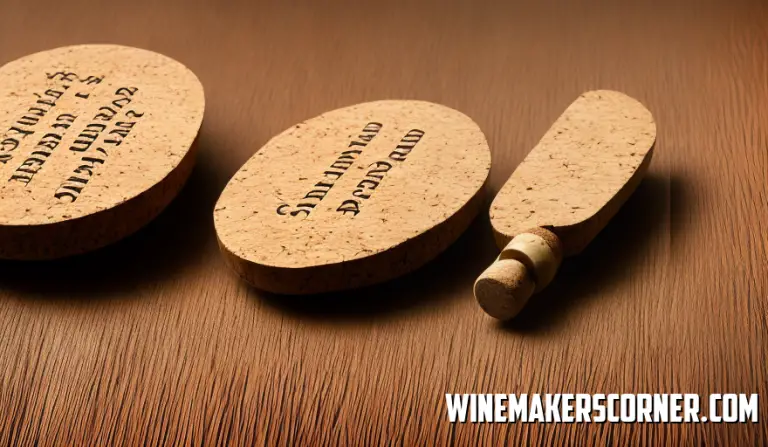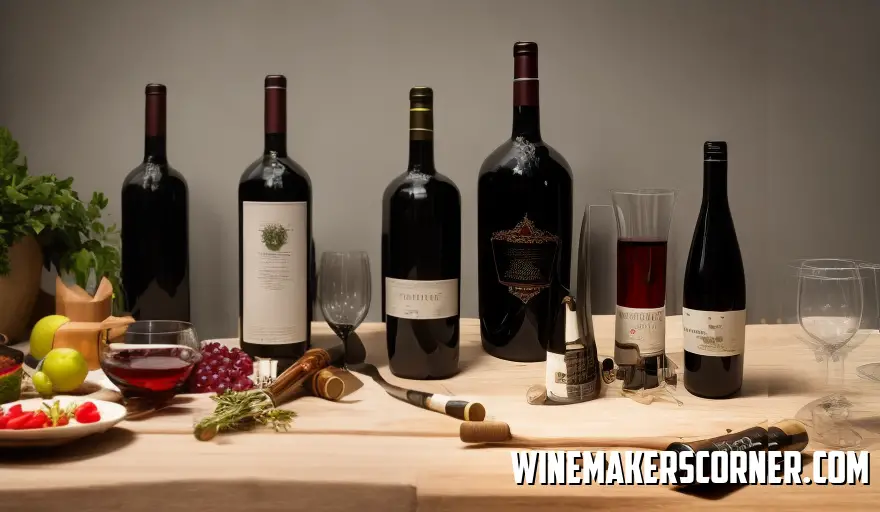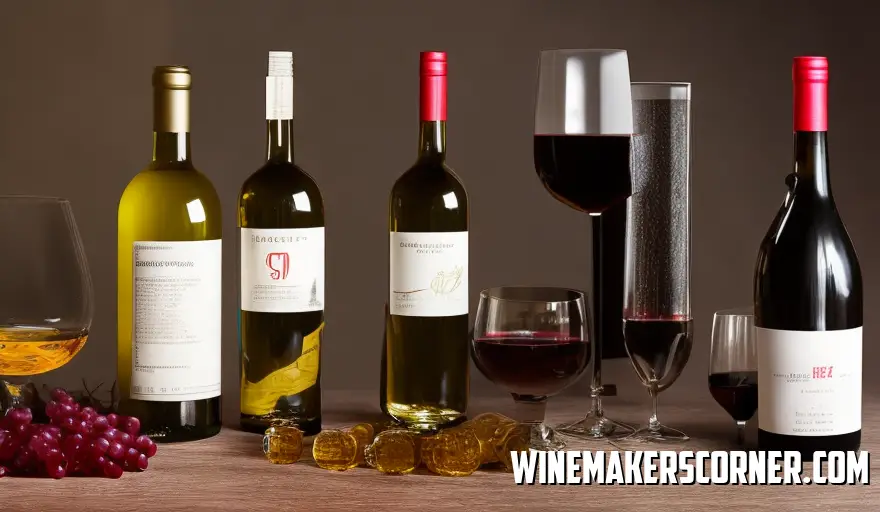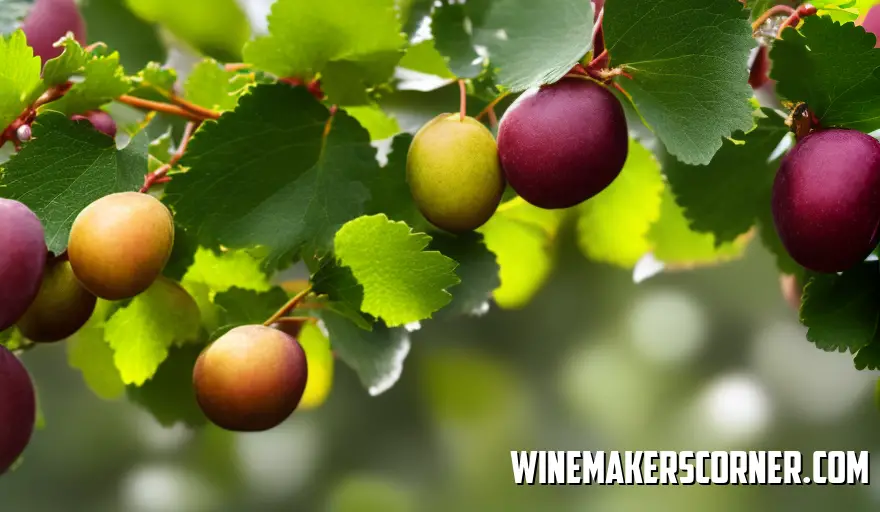Wine fans know there’s nothing quite like indulging in a delicious bottle of vino. One vital component often goes unnoticed as we swirl, sniff, and savor each sip: the humble wine cork. This seemingly primary object is essential in unlocking delicious flavors and aromas.
This comprehensive guide dive into all the cork sizes – from their pivotal role in preserving your precious liquid assets to selecting the right size for your chosen bottles.
Get ready as we take you on a journey through cork dimensions – because every little detail counts!
Table of Contents
Understanding Cork Sizes and Their Importance
Choosing the right size cork can make all the difference when preserving and enhancing your wine’s unique taste profile. Let’s explore the intriguing world of cork sizes and discover why they’re so important! First, let’s talk about length: corks can vary from 38mm to 54mm long.
But why does length matter? Longer corks offer better protection against oxygen infiltration, which is essential for wines intended for extended aging periods. Shorter corks might be more budget-friendly or suitable for wines meant for immediate consumption but beware – they won’t provide optimal spoilage protection! Next, let’s consider diameter: standard bottlenecks require a cork with a diameter of approximately 24mm – however, merely fitting snugly isn’t sufficient! When removing it from the bottle, you need precisely the right amount of pressure to prevent air leaks without causing damage. It takes skill to achieve this delicate balance. Are they interested in trying out “agglomerated” corks?
These versatile options consist of compressed cork granules held together using food-safe adhesive, offering a reliable seal without breaking the bank. They’re particularly well suited to everyday wines helping keep your bottle contents secure and fresh.
However, if you’re looking to invest in more premium cork options, it’s essential not to overlook quality. Natural corks’ unique cellular structure allows them unparalleled elasticity and sealing capabilities – yet their rate can vary based on factors like harvesting methods and tree age.
Before settling on a cork size, consider your wine’s aging potential, bottle dimensions, desired sealing properties, and overall cork quality.
Byconsidering these detailst and seeking out top-quality corks where necessary, you can help ensure that your wine is adequately preserved and ready to enjoy.
Types of Wine Corks: A Breakdown
The choices we make regarding our wine rituals can affect our experiences significantly, including selecting the right cork size. It may seem like a daunting task at first glance but fret not! This comprehensive guide will take you through everything you need to know about the different types of wine corks available.
Those who appreciate classic ways should undoubtedly consider natural corks sourced from cork oak trees. They allow exquisite aging potential while adding complexity to your favorite bottles. It is essential to not,e though, as these corks may occasionally show inconsistency,y leading to “cork taint.” That being said, they remain among connoisseurs’ top picks.
For budget-friendly options that allow efficient sealing suitable for short-term storage—meant only for wines consumed within just a couple of years—the agglomerated corks made up of glued cork granules won’t hurt either compared to natural ones’ cost. Wine closures come in several options catering to specific requirements. The hybrid option of technical corks combines raw and agglomerated materials that provide affordability and consistency without compromising quality.
These closures suit mid-range wines meant for consumption within five years.
For those who prefer modern advancements, synthetic corks from plastic compounds eliminate the possibility of cork taint while maintaining an adequate seal. While some argue against their aesthetic appeal compared to traditional cork closures, synthetic variants have undergone extensive improvements in recent times to resemble natural alternatives both visually and texturally.
Lastly, screw caps – initially met with disapproval by wine enthusiasts but now frequently employed as a practical replacement – offer convenience through easy opening and resealing options while effectively preserving freshness without any associated contamination or oxidation hazards.
All in all, pinpointing the correct cork size and variety is based on various factors such as usage intentions of the wine, duration of storage required, and personal preferences. Remember the choices above to ensure that every drop of your vino has achieved its optimal capacity — whether a value-for-money tipple handpicked for a leisurely evening at home or a high-quality vintage reserved exclusively for extended aging periods.
Cheers!
Pros and Cons of Different Cork Sizes
Your wine taste and longevity depend on cork size – it’sessentialt not to take this storage aspect lightly! Choosing an inappropriate stopper can lead to disaster; fortunately, we’ve compiled an extensive guide to help you avoid this scenario altogether. Standard-sized corks have long been popular among winemakers due to their robust sealing nature against outside contaminators like air and dusty particles – but did you know they also preserve your wine flavor profiles evenly? It’s true! The only downside is that sometimes extracting them from bottles becomes messy as they tend to break within their necks rather than come out entirely.
Longer-sized corks offer extended aging potential thanks partly to their thickness and density concentration, which further reduces oxidation rates compared with standard ones. It’s no wonder many vintners prefer these stoppers when storing high-quality wines destined for extended cellar periods – keep in mind though: uncorking these bad boys requires tools like a two-pronged cork puller! For winemakers seeking the perfect bottle closure solution for their wines, shorter corks are a viable option worth considering. Unlike longer counterparts, these compact stoppers are easier and safer to extract from bottles during uncorking procedures—thus reducing the possibility of damages or breakages while offering cost-practical benefits. However, it’s essential to remember that these small stoppers might not guarantee optimal protection against oxidation over extended periods.
Alternatively, if you’re searching for a durable and user-friendly sealing solution for your wine bottles, choosing synthetic corks is an attractive alternative. Made with plastic materials designed to mimic natural cork properties, synthetic stoppers are resistant to breaking or crumbling when plucked out of bottles and offer consistent sealing performance even with multiple uses or reseals! This makes them an excellent choice for wines meant to be consumed soon after opening. Nevertheless, synthetic corks might not provide the same level of breathability as natural cork options, which could impact aging capabilities over time. In summary, selecting the perfect cork size involves various factors, such as users’ preferences and intended aging periods for their wines.
Choosing the right cork size ensures your wine bottle is sealed adequately while accommodating your unique needs and preferences. Standard corks have long been relied upon by many individuals due to their consistent ability to provide a reliable seal across various types of wines.
However, if you’re seeking an extended aging potential in your bottle – particularly for reds or higher-end whites – longer corks may provide added benefits in terms of oxygen exchange over time. If affordability and practicality are vital concerns, opting for shorter cork sizes could make more sense.
Additionally, synthetic alternatives offer added durability along with contemporary design features. By considering your specific goals and preferences for storing and enjoying wine, you can think about which cork size is most appropriate for your needs.
How to Choose the Right Cork Size for Your Wine
The wine world is vast and varied… brimming with all tannic delights and aromatic treasures! And at the heart of it lies that oft-forgotten hero: the humble little closure known as a “cork.” It’s easy to overlook this teeny detail when reveling in your latest vintage – but trust us choosing just the correct sized cork could mean all the d.” difference between enjoying an exquisite bottle of a pinot noir versus crying into your glass of Two Buck Chuck! So what size should you choose? In this guidebook on selecting your perfect-sized cork (and maximizing your wine quality potential), we’ll explore key factors you’ll want to remember when making this critical decision. As a starting point – consider your bottle’s dimensions carefully.
All wine vessels come in different shapes and sizes; thus, ensuring an appropriate fit between your bottleneck and cork is imperative! For example, standard 750ml Bordeaux style bottles typically utilize corks around 22 24mm in diameter, while wider-mouthed Burgundy or Champagne vessels may need slightly larger options. Another factor to remember when selecting your ideal size cork is the closure length itself. A longer pin means the maximized surface area for contact with your wine (thus better-aging potential!). However, take care not to go too long for your bottle size – this could lead to awkward, uncorking scenarios or even damage to the cork.
When it comes to wine, cork size is an important consideration. Typically standard lengths range from 38mm for everyday wines to 54mm for premium vintages intended for extended cellaring. It’s also essential to factor in the material composition – natural corks exhibit excellent elasticity and sealing abilities but can be more expensive than their synthetic counterparts. Agglomerated or composite corks are more cost-effective options that blend natural cork granules with binders, making them ideal for wines meant to be consumed sooner rather than later.
And let’s not forget personal preferences! Some winemakers prefer screw caps or glass stoppers to avoid “cork taint” issues. In conclusion, selecting the right cork size includes considering bottle dimensions, anticipated aging potential, material composition, and individual preferences before choosing a closure option.
With these factors in mind when selecting a cork, you’ll guarantee that your wine will stay delicious while retaining its unique qualities and character – so here’s to a perfect pour!
Storing and Ag, ing Wine with Various Cork Sizes
Storing and aging wine requires mastery, like an artist creating their masterpiece by carefully balancing various elements contributing to its taste, aroma, and overall quality evolution. Cork size is one critical factor many overlook, but it is crucial to ensure your wine ages gracefully. Wine cork sizes vary significantly from narrow short ones to long wide ones with specific functions for aging your wine perfectly.
Short corks are well-suited for wines meant for consumption within a few years because they offer minimal air exchange slowing down oxidation – ideal for preserving freshness in young wines. Long corks best suit aging wines intended to age over time because they allow steady oxygen exchange enabling optimal development as tannins soften while flavors meld together gradually, creating captivating nuances only found in matured wines.
Wide corks introduce an extra layer of complexity when storing and aging wine, making them great for different wines based on the desired outcome. To truly appreciate the art of winemaking, it’s essential to understand how even the most minor details can significantly impact a wine’s flavor and quality.
One such detail is cork size – specifically, how choosing the right one can help protect your bottles from external factors like temperature fluctuations or humidity changes that could hinder their maturation process. A wider cork creates a tighter seal between the bottleneck and the cork itself, helping maintain an ideal environment inside the bottle while preventing unwanted contaminants from entering. In contrast, thinner pins may not provide as strong of a seal and could lead to premature oxidation – something you want to avoid if you’re storing expensive vintages.
When selecting a cork size for your home winemaking endeavors or wine collection, it’s essential to consider factors like desired aging duration and storage conditions. Those who are only planning on storing their wines for a few years may be able to get away with shorter or narrower corks; however, those who are hoping to age their bottles over several decades should opt for broader or longer pins that provide superior sealing capabilities. By considering all of these variables when choosing your corks, you can maximize each bottle’s potential.
So why settle for anything less than perfection?
Choose the right size cork – one step towards achieving that perfect glass of wine.
The Role of Cork in Wine Preservation
Cork is not just any ordinary material. It is crucial in wine preservation. Sourced from the bark of cork oak trees, its unique properties make it the best option to seal wine bottles.
What makes it necessary to maintain your favorite wines’ quality and flavor? For starters, corks elasticity ensures a tight seal that prevents air from entering the bottle and oxidizing the wine. This oozing can lead to spoilage or taste alteration.
Moreover, its compressibility enables easy insertion and removal without compromising the integrity or seal of the bottle. Cork’s natural moisture resistance is another critical feature that seals the deal preventing liquid seepage and allowing minimal oxygen transfer over time. This exchange helps wines age gracefully; no alterations are made through entirely airtight closures acquiring complex flavors that wouldn’t be achievable otherwise.
Corks are also environmentally friendly as they are biodegradable and renewable resources that support sustainable forestry practices while preserving ecosystems. In wine preservation, choosing the correct cork size is an indispensable factor.
Numerous sizes are available – each designed to cater to specific bottle types and aging requirements. For instance, longer corks impart better sealing during extended aging due to heightened contact with the bottleneck area.
Nonetheless, size alone isn’t enough – quality takes center stage too! Top-notch corks guarantee uniform sealing performance and minimize contamination risks from harmful substances like TCA (trichloroanisole).
Selecting a suitable cork remains paramount to ensuring that your prized wines mature gracefully while maintaining their authenticity until indulgence. The next time you open a bottle of OK wine, pause to acknowledge the invaluable role played by this unassuming material in enhancing your tasting experience.
Synthetic vs. Natural Corks: Which is Better?
A hotly debated topic among oenophiles is whether synthetic or natural corks are superior at sealing up wine bottles. Unfortunately, both styles have perks and pitfalls that make declaring one unequivocally better than another nearly impossible. Today’s discussion will walk through what sets each type apart – including how they impact a given bottle’s flavor profile – so that you can make informed decisions about your future wine purchases.
To begin with: Natural corks come from harvesting trees called “cork oaks” every nine years or so in a way that has minimal environmental impact overall; this sustainability factor often makes them an intriguing option for those who care about nature. Additionally, they’ve been used in wine bottles as far back as anyone can remember, which means that natural cork has long formed a sense of tradition and quality regarding wine culture. However, when shame in natural corks, known as “cork taint,” develops,s, it can result in an unpleasant aroma that negatively impacts the wine. Synthetic corks are designed using plastic materials like polyethylene or polyvinyl chloride (PVC), so they’re exceptionally consistent in shape and size – something many find appealing from a presentation standpoint.
Further, synthetic corks remove any possibility of cork taint contamination while providing an effective barrier to oxygen entry into the bottle; this ultimately results in longer-lasting flavor profiles over time. Have you ever wondered if wine tastes better with natural or synthetic corks? It turns out there are arguments for both sides.
Natural corks might let in a tiny bit of oxygen during long-term cellaring, which can help develop more complex flavors. However, synthetic corks create a tight seal that reduces spoilage risks and creates consistent aging conditions. Of course, it’s not just about how well they work – some people also have strong opinions on aesthetics! Do you prefer the classic look and feel of traditional cork?
Or would you instead go for something more modern and convenient?
The good news is that there’s no right or wrong answer here – it all depends on what matters most to you as an individual wine drinker.
Whether focused on traditional environmental impact or ease of use, weigh all your options before making your pick.
The Impact of Cork Size on Wine Oxidation
The intricate world of wine corks often goes unnoticed despite playing a vital role in preserving wine quality. An essential aspect of this preservation process is how cork size affects wine oxidation levels; hence we need to investigate this issue further.
Oxidation occurs when oxygen interacts with components in wine, resulting in altered aroma and flavor profiles that lead to spoilage if excessive; however, moderate amounts can be beneficial for aging wines as well as imparting desirable characteristics such as nutty flavors in sherries or aged whites.
Cork size directly influences oxygen exposure levels which impact overall preservation efforts; more giant corks offer better seals against air infiltration due to increased surface area contact with the bottlenecks resulting in slower controlled oxidation rates, while smaller ones subject wines to more significant risks of premature aging or spoilages from over-oxidation due their inadequate sealing properties which allow too much air inside.
Factors such as cork length matter, too, when trying to prevent oxidation issues. Wine lovers know preserving flavor is essential when it comes time for long-term storage and aging of their favorite bottles. Selecting an appropriately-sized cork is critical to help maintain optimal taste over time. Longer pins offer increased resistance against oxygen penetration by slowing down molecule passage through their structure before reaching flavorful grape juice inside; however, equally important in this decision-making process is not overlooking quality control requisites in order not compromise sealing effectiveness or introduce undesired exposure risks caused by defects present in inferior product versions available on market shelves today – high-quality corks are produced with minimal flaws ensuring desired outcome targeting proper preservation needs during aging processes allowing even experienced connoisseurs peace of mind while enjoying favorite selection in the privacy of their wine cellar.




